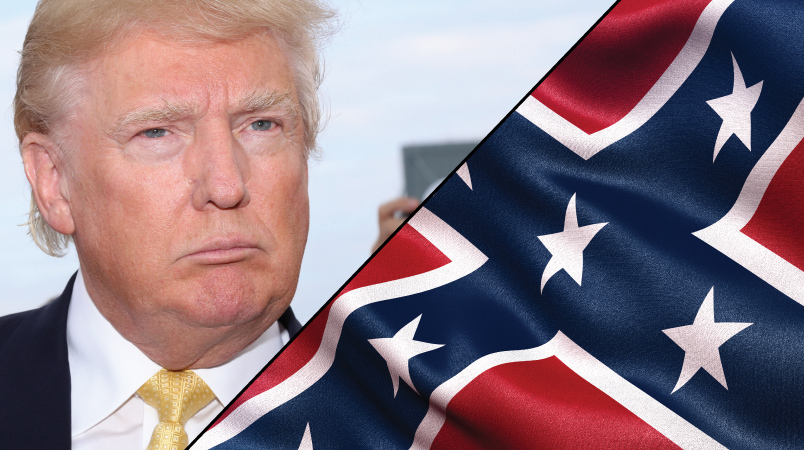Some things are not related, except they are totally related. Witness today’s news that GOP Chair Reince Priebus felt compelled to reach out to peak GOP presidential candidate Donald Trump and beg him to tone down the Stormfront.org-like attacks on Mexican immigrants – and just as notably to leak to the press that the call had happened. Trump is now out denying the reports, claiming that Priebus had told him he was doing great and had struck “a nerve” with his rants. For my part, I think both reports may well be true. If you’re someone of Priebus’ relative stature, approaching someone of Trump’s arrogance and buffoonery, who is insulated from all of the pressures usually used to bring politicians to heel, you’re not going to say, “Dude, STFU or else.” I think you’re probably to say something like “Dude, you’re killing it. You’ve really struck a nerve. But a party can only handle so much of your awesomeness at once. Let’s try to tone this down a bit.”
The issue of course is that Trump has struck a nerve. It’s not just his ability to get on TV or his (in political terms) limitless money. Trump’s tirades against Mexicans have juiced his popularity among Republican primary voters, which is to say that his clown show has highlighted the fact that a lot of core Republican base voters are themselves hostile to immigrants and particularly ones from Spanish-speaking Latin American countries.
Which brings us to the simply amazing news out of the House overnight, where House Republicans are coming to the defense of the Confederate flag – even as it’s being surrendered or downgraded in the heartiest hearts of the Old Confederacy in places like Alabama, Mississippi and South Carolina. Democrats may be the party most affected by declining religiosity and church attendance in America. But Trump and House Republicans are giving them an object lesson in John Calvin’s doctrine of unmerited grace … and perhaps salvation.
Democrats got a series of what seemed like totally uncontroversial anti-Confederate flag amendments on unopposed voice votes. But now House Republicans have decided it’s a good idea to go to bat for the flag. Mississippi’s Steve Palazzo (R) says, “Congress cannot simply re-write history and strip the Confederate flag from existence. Members of Congress from New York and California cannot wipe away 150 years of Southern history with sleight-of-hand tactics.” It’s not terribly surprising that a Mississippi Republican would say this. But so far, he’s got the whole House GOP caucus on board with the plan.
It is quite literally the best of both worlds for national Democrats: changes of heart and removed flags on the ground in Southern states where Democrats, and particularly African-American Democrats, have been clamoring for the change for decades, but national Republicans picking up the mantle of pro-Confederate flag sentiment in Congress to keep it alive as a potent symbol, will tarnish the GOP brand. In brass-tacks political terms, for Democrats, what’s not to like.
Both developments, but particularly the latter, capture just how insulated the House GOP has become from national political winds and also how polarized (obviously related developments.) As we’ve seen, Republicans in state office in the South have been lining up to surrender the flag. Even though few of these leaders like Nikki Haley or the governors of other Southern states face any real political threat from Democrats, they nonetheless represent political communities that are not entirely made up of people who agree with them. They are also eager to attract business from multinational corporations who have very little tolerance for high-profile race-tinged controversies over the Confederate flag.
Republicans should be looking forward to the 2016 race as Republicans did to 2000 and Democrats did to 1988 and 2008. It is difficult for a party to win a third term in the presidency. But the electorate is changing in structural ways that make presidential electorates very challenging, even as the House appears to have an almost impervious Republican majority through at least the end of the decade. Meanwhile, that same mix of isolation and invulnerability of the GOP base makes it seemingly impossible for national Republican operatives to keep base Republicans from visibly embracing the kinds of politics which endangers the brand and the party at the national level.






